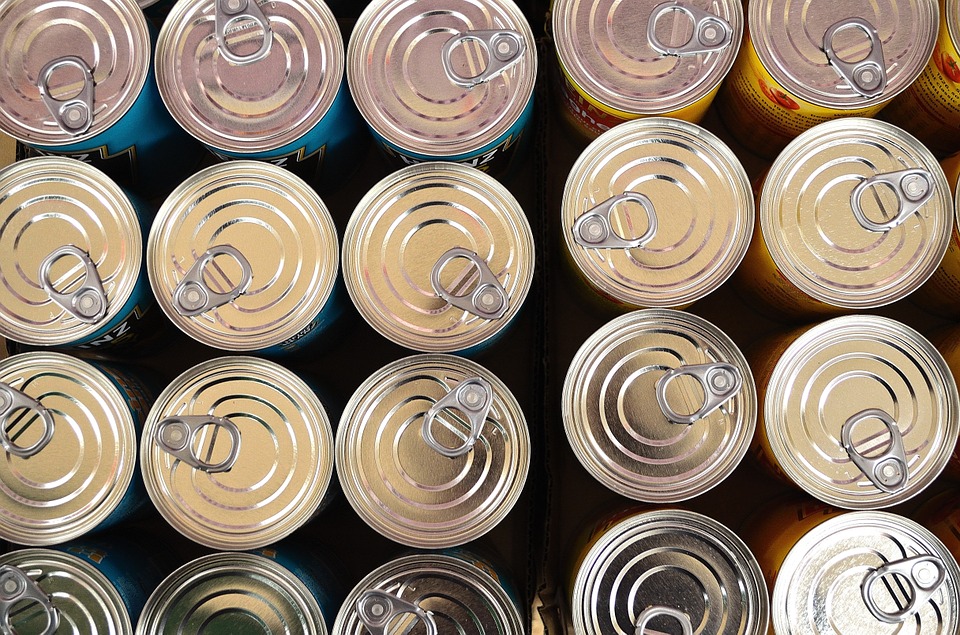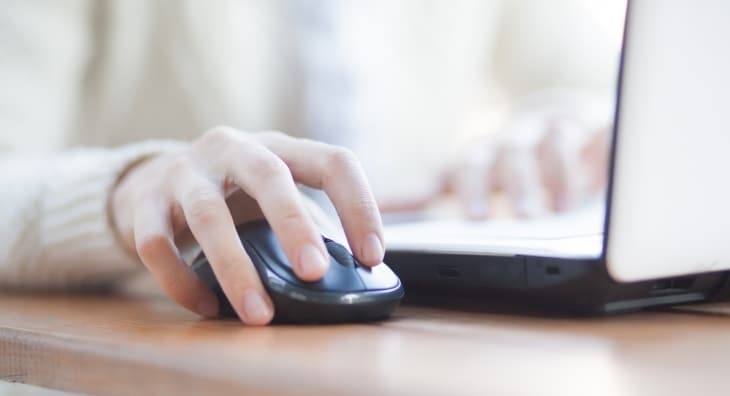Jasmine Birtles
Your money-making expert. Financial journalist, TV and radio personality.


We can’t ignore the rise in coronavirus warnings this week. But what does self-isolation actually mean for you – and your finances – and how can you prepare for it?
The Government predicts that, during a COVID-19 pandemic peak, as many as one fifth of the UK workforce will be sick at the same time. That also means their families are likely to be forced into 14-day self-isolation, too – to prevent the spread of the disease.
As workplaces and schools prepare to close in the event of a regional outbreak, we’ve put together a coronavirus self-isolation survival guide. From preparing ahead of time to fun ways to beat the boredom, here’s everything you need to know.
Oh, and make sure you’re signed up to our Daily Coronavirus Self-Isolation Survival Emails for the latest tips delivered straight to your inbox.
First things first: we’re not here to scare you. Coronavirus is serious – nobody can deny it – but remember that much of the self-isolation talk is in the interest of public health. That’s why many travel operators have reduced or cancelled flights: it helps stem the spread. Self-isolation is designed to stop the disease spreading to the most vulnerable people – it’s not because every who gets it will be very sick and at risk of dying.
Yes, there is a mortality rate to the disease. However, if you look at the latest statistics, the highest rate is in the elderly and also those with pre-existing conditions that affect their immune system.
Very much like the seasonal flu, most people who catch coronavirus will make a full and swift recovery.
However, it’s important that you follow instructions to isolate yourself if you even suspect you have the virus. It does spread very easily – which makes it risky for those who are more likely to suffer severe symptoms.6
Self-isolation is on the cards for many of us. If you’ve come into contact with someone who has confirmed coronavirus, you need to stay away from other people for 14 days. If someone in your household has the virus – or is suspected of having it – you also need to self-isolate with them.
The aim is to slow the spread of the virus. It means you can’t go into crowded spaces – like trains and shops – and you need to avoid other people. The trouble with coronavirus is that people can be infected – and infectious – for two weeks before symptoms even show. So, if there’s even an inkling that you could have it, quarantining yourself at home protects others. If you end up not getting it, you’ve at least had a fortnight at home to work, rest, and spend time with family!

We’re not suggesting you go out and panic-buy. However, it’s sensible to make sure you stock up a few extras each time you shop. A 14-day isolation will mean you need to be as self-sufficient as possible – plus, if you’re poorly, you won’t want to run out of tissues, medicines, or chocolate!
Stock up on non-perishables like:
Buy things you’d normally eat, so that if you don’t have to end up in quarantine, the food won’t be wasted. Look for offers, too: now is a good time to bulk-buy to stock up and save money at the same time.
Make sure, too, that you’ve got a supply of:
So that, if you or your family members do fall ill, you’ve got the supplies to manage the symptoms at home (and keep it as clean as possible to avoid spreading infection).
If you can, and have space in the freezer, cook a batch or two of your favourite freezable dinners. Things like lasagne, casseroles, and curry work really well here. Batch cooking saves you money – and it stops you reaching for the takeaway menu when you’re too tired or ill to cook! Having several portions frozen makes it easy to have a quick meal to hand without any effort.
If you don’t have these things and you are suddenly quarantined at home, don’t panic! The joys of online shopping mean you can still have things delivered.
When your grocery delivery – or any other deliveries – arrive, remember to forewarn the delivery courier. Let them sign the delivery pad for you, and leave the boxes or bags on your doorstep, so that they can keep a safe distance to minimise their risk of catching the virus.

Most businesses are now making emergency plans if they have to close the workplace. Some, like Greggs, have announced that sick pay will be paid to any employee forced into self-isolation.
However, others won’t cover sick pay and you’ll rely on Statutory Sick Pay, which is £94.25 a week for people who normally earn £118 a week or more.
The good news is that the Prime Minister announced on 4th March 2020 that the SSP rules have changed in light of the coronavirus. Instead of 3 unpaid ‘waiting days’ before you can get SSP, it is now applicable from the first day you’re ill.
For the self-employed or those on zero- hour contracts, they might not get the benefit of any pay. The Government has said benefits will be available to those not eligible for SSP, but the details for this have yet to be laid out.
This, however, is an unprecedented pandemic situation – and many employers are willing to consider introducing emergency policies to cover sick pay for even zero-hour contractors.
Talk to your employer to find out what their plans are for you. If you’re expected to work from home during isolation, request access to the right kit – like a laptop – to be able to do this.
If your workplace refuses to pay if you’re forced to self-isolate, don’t go into work anyway. This will spread the virus and could make many more people sick.
You can self-certify for the first 7 days you’re off sick from work. That means your employer can’t ask you for medical evidence, like a fit note from your GP, to prove you’re too ill to work.
However, in light of the 14-day requirements for self-isolation, employers have been asked to take this into consideration. It’s not in the public health interest to ask employees to go to the GP to get a note for the second week of their isolation – so most businesses are likely to be lenient on this matter.
Make sure you get agreement in writing from your workplace what the policy will be regarding fit notes and sick pay relating to coronavirus and quarantine.
Your employer should give you full pay if they decide to close your office and stop workers from coming in. You don’t have to claim sick pay: if your boss closes your workplace, that’s their decision and they must give you your full salary for each day the office is closed, whether you are asked to work from home or not.
Many people are worried that if they get sick, or have to isolate because a family member is ill, they won’t be able to attend the job centre for appointments. This usually means sanctions – deductions of benefit payments – for up to 26 weeks.
However, the DWP has announced that anyone who cannot make an appointment because of coronavirus – either from being ill or being quarantined – can call the job centre. They will ensure your benefit payments are continued while you’re unable to attend your appointment.
If you’re going to work from home during a self-quarantine period, make sure you’re prepared. Set up the equipment you need while you’re still at the office – and make sure all the tools and software you need are installed, too.
Find out the rules for phone bills, too: will you be supplied a work mobile phone, or will your bill be reimbursed via expenses?
Make sure you know the remote working process, too. Will you be expected to check in with your manager each day? How will meetings be conducted? What’s the rule if you become sick while working from home – how do you communicate this according to company policy?
Have processes set out in writing to avoid any confusion.

Some schools have already closed and all others are preparing action plans for the eventuality.
School closures have a huge impact on the local economy – so it’s always a last resort. They understand that finding childcare at no notice is very difficult – particularly in this type of situation when Government advice is to avoid group gatherings.
Make sure your child’s school has your current contact details, including your work number in case the school closes during the day. Find out if they have a coronavirus action plan, and if there is anything you can do to help prepare – such as joining a phone tree to let other parents know if the school closes.
Teach your children about increased hygiene awareness, too. Remind them to cough or sneeze into a tissue – or if they use their hand, to wash their hands straight after, or use hand sanitiser. Pack a hand sanitiser into their bag, too, and make sure they know to use it before they eat anything.
Even if your employer will cover you for full pay over 14 days of self-isolation, it’ll help to have an emergency fund accessible to you. Those who’ll rely on statutory sick pay or – worse – have no sickness benefits, will need to set aside a much bigger emergency fund.
Save as much as you can over the next few weeks. This will give you a financial buffer in case you need to take longer than two weeks off work or have no sickness pay.
It’s also sensible to have some cash in the house, too. Rather than keeping everything in your bank, a small supply of cash means you’ll have access to money in an emergency. Relying on technology is all very well – but if all your money is digital, what happens when your banking app fails and you need to pay for a cheeky takeaway when you’re feeling too ill to cook, or need to send a friend to the shops for you?
One of the biggest issues facing the UK population when it comes to self-isolation is that we’re simply not used to it. Our routines revolve around taking children to school, going to work, travelling to meetings, and having a social life.
When that all stops, you risk going a little barmy. That goes double if your entire family are in quarantine for two whole weeks together!
Keep in touch with friends and family on social media. Stay connected and make the most of the conversations you can have via chat messenger apps or video calls.
If you can, and it won’t put people at risk, go for a walk. Self-isolation doesn’t necessarily mean staying indoors for 14 days straight.
If it’s possible to leave your home without coming into direct contact with others, such as driving to the park, do so. Find a quiet spot without other people around and enjoy some sunshine and nature. Don’t, however, take children to an adventure playground if they’re supposed to be in isolation – make sure you stay away from other people to avoid spreading infection.
If you’re in a city centre and can’t get around without getting close to people (London, we’re looking at you), make sure you get some daily exercise. Follow a YouTube workout routine to work up a bit of a sweat and get moving. You’re not doing your usual commute and walking around the office, so it’s important to keep your exercise up to stay healthy!
When you’re at home with the kids, turn working out into a fun game. Throw a dance party or build obstacle courses in the garden to help them expend energy as well as stay fit.
Now’s a great time to experiment with those recipes you’ve wanted to try for ages but never had the time to do. From stews to slow-cooked curries, experiment! Find new ways to get your five-a-day to ensure you’re getting enough vitamins and minerals to stave off the virus.
Treats, however, are also important when you’re cooped up at home. A chocolate here and there or one takeaway dinner each week can keep up morale – just don’t rely on junk food every day!
It’s tempting to stay in your PJs all day if you don’t have to leave the house. However, unless you’re actually struck down with the virus (and not self-isolating ‘just in case’ because someone you’ve been in contact with has it), keep a routine.
Get up at the same time you normally would each day, and complete your morning shower and dressing routine. Have breakfast, and settle down to set up your work (if you’re working from home). If you don’t have to work, use the time to do things you never normally have time for: take a fast-track language course, read the books mounting on your to-read pile, or learn a new skill.
Keeping a routine while you’re in self-isolation will also help you when you go back to work, too.

Working from home doesn’t come naturally to everybody – especially if you thrive in an office environment. Here’s how to stay productive and stop yourself procrastinating!
Knowing what you need to tackle each day gives you purpose. It also means you can see who you need to get in touch with to complete your projects, which means you can…
Don’t rely on email to get things done. Instead, set up phone calls or – ideally – video calls using free software like Zoom. This helps you get things sorted between your team much quicker – and gives you the social element of an office you’re missing while you’re stuck at home.
It’s easy to get into ‘the zone’ when you’re working from home. Set alarms to make sure you take regular breaks! Get up from your ‘office’ and away from your computer for a coffee break every two hours at least.
We don’t all have the luxury of a spare room – but dedicate space to become your office. Even if it’s a corner of the kitchen table, make sure you sit at a desk every day. It’s tempting to sit with your laptop on the sofa or in bed, but this affects your posture and will give you neck and back pain.
If your children are home from school, too, it’s essential that you create some ground rules. Make sure they know when they can – and can’t – disturb you during the day. It’s easier said than done, especially with younger kids, but sticking to the rules as much as possible will help you stay productive.
Having no physical commute means it’s easy to keep checking your email well past 5pm. Switch off your work phone and laptop at the end of your normal working day.
This is really important for your mental wellbeing – and ensures you spend time with your family while you’re all together, too!
When you can’t go out, time suddenly seems to stretch in front of you. Keep yourself entertained with these free or budget-friendly ideas!
If you’re stuck at home with flatmates or your family, set up a bake off competition! Of course, if one of you is ill (or suspected of being ill), it’s not advised they participate. But for those sent home to self-isolate as a preventative measure (such as school closures), it’s a great way to spend an afternoon.
Simple things like biscuits or pancakes are quick to make – and you can have plenty of fun decorating them, too. Most ingredients – eggs, butter, flour, sugar etc – will probably be in your cupboard already, making it a cheap or free activity!
Build a sofa fort! You’re never too old to let your inner child out – and if you have kids around, they’ll love this idea, too.
Set up a tent inside – a real one, or makeshift sheets-and-blankets style – and fill it with comfy pillows. Snuggle up and watch a film on your laptop, tell each other stories, or simply have a nice nap in your new nest.
Keeping kids entertained on a budget AND when they can’t go places is a challenge. A treasure hunt is always a winner, though!
Draw a map of your house – use your imagination, and designate areas like ‘the jungle’, ‘lava fields’, and ‘Here Be Dragons’ – whatever takes your fancy! Write cryptic clues and hide them around the house, leading them to ‘treasure’ at the end. This could be a food treat, a board game, a toy – whatever your children will love!
Dust off the playing cards and get the Monopoly out from the loft. Now is the perfect time to connect as a family without lots of screen time – create a board game marathon. If you really want to get competitive, write up a league table and play a different game each day to score points!
Reading books is always a great way to pass the time – but what about writing one? Alright, maybe a whole novel is a challenge – but you could write a short story or three.
This is a great way to spend time, whether you live alone or you’ve got your entire clan house-bound. If you’re with family, write a story together!
If you don’t want to write fiction, make some extra cash instead: write letters to magazines.
Every single one of us has something we’ve been meaning to do but haven’t got around to. Putting that shelf up, painting the living room – whatever it is, you’ve probably already got the stuff you need for it. We’ve all done it – gone to B&Q to get supplies, then decided to ‘do it later’.
Now is later! Get the job done that’s been bothering you for ages – you’ll feel great afterwards, too.
OK, it’s not fun – but now’s the perfect time to do it. Use a comparison tool to switch your broadband, energy, and car insurance to save hundreds of pounds over the next year.
You could also look at writing up a household budget, and checking to see if you’re getting the best rates on your savings and mortgage. You’ve got lots of time on your hands while you’re in self-isolation, so it’s a great opportunity to set yourself up for the new tax year and get your finances in order!
There are so many film franchises these days, why not pick one and watch them all? A film marathon day is perfect if you’re feeling poorly too, as it’s low energy yet entertaining.
Sign up to a subscription service like Netflix or Amazon Prime if you don’t already have one – you can pay monthly for these and cancel any time, keeping it cheap. Then, you can choose from thousands of films to add to your watch list!
Returning to school and work after two weeks of isolation is going to feel a bit weird – whether you were ill with the virus or not!
If you’ve had coronavirus, find out from your employer if you can manage a phased return to work. This will help you recover more quickly as you can adapt with things like shorter working days to prevent fatigue. Like any flu, it can take several weeks to get back to your full strength, so ask what adaptations can be made.
If you’ve been in isolation to prevent getting the virus, try to take some of the habits you created while working from home with you. Regular breaks, for example, are easier to do when you’re at home – but are a great habit for the office, too!
Check your next payslip in detail, too. Make sure your employer has kept any promises about pay, and query any deductions made.

Fairly obvious, but possibly helpful, advice.
How would antibacterial wipes stop a virus?